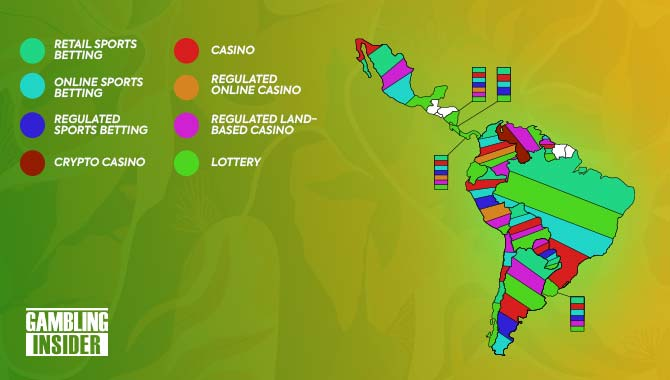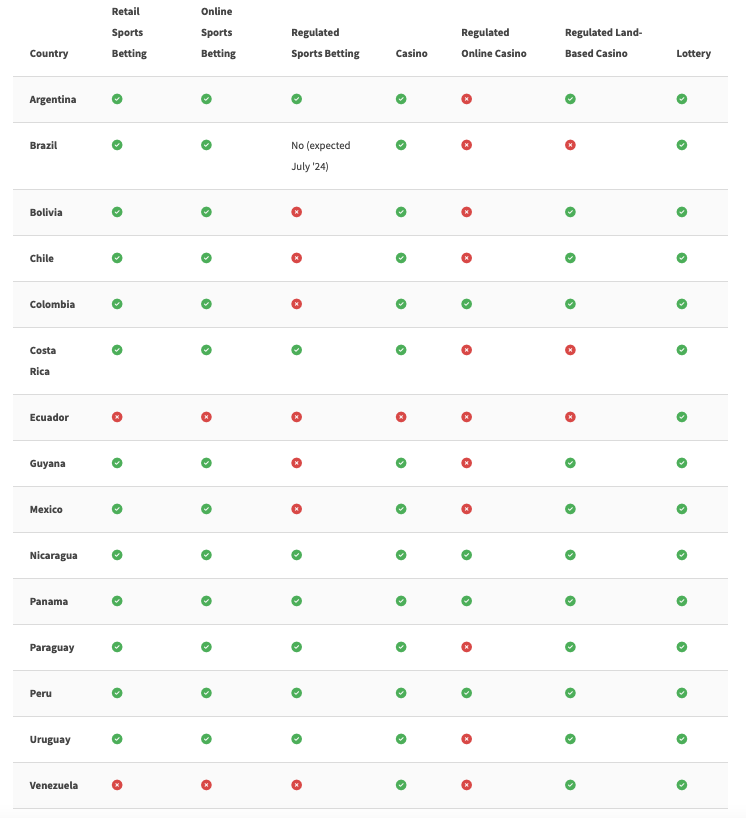
The Latin American online gambling industry has experienced significant growth in recent years, attracting the attention of a large number of investors and operators. With the popularity of the Internet and mobile devices, more and more residents of Latin American countries are participating in online gambling activities. However, with this rapidly growing industry, regulatory issues have gradually emerged. In order to ensure the healthy development of the market and protect the rights and interests of consumers, governments around the world have begun to formulate and implement a series of regulatory regulations. This article will explore the current regulatory status of the online gambling industry in Latin America and analyze the regulatory characteristics of different countries.
Regulatory Status in Major Countries
Brazil
For a long time, gambling activities in Brazil have been mainly restricted by laws and regulations passed in the 1930s, and most forms of gambling have been banned. However, in recent years, the government has recognized the economic potential of the gambling industry and has gradually promoted legal reforms to open up the market and attract international investment< br> At present, fixed odds sports betting has been legalized in Brazil, but the specific regulatory and operational framework is still under construction. The government is formulating specific licensing conditions, tax policies, and operational regulations to ensure the orderly development of the market. Casinos, online casinos, poker, and other forms of gambling are still strictly restricted.
Argentina
Argentina's gambling industry has a long history, but the pace of legal and regulatory reform has been relatively slow. Argentina is very similar to the United States, with interstate regulation of all gambling activities, meaning that each jurisdiction decides on its own what kind of gambling restrictions to set, which leads to large differences in regulations between provinces.
Some provinces, such as Buenos Aires City and Buenos Aires Province, have already legalized online gambling and developed detailed regulatory frameworks. Other provinces are gradually following suit, but progress is mixed.
Mexico
The gambling industry is an important source of tax revenue in Mexico. The government imposes a certain percentage of tax on gambling revenue. Therefore, online and physical gambling in Mexico are developing rapidly within the scope of government permission.
The Directorate of Gaming and Sweepstakes (DGJS) under the Mexican Ministry of the Interior is responsible for regulating gambling activities. Both online gambling and physical casinos require a license issued by the government before they can operate.
Colombia
Colombia is the first country in Latin America to systematically regulate online gambling. Online gambling is legal and strictly regulated in Colombia. Operators must obtain a license from regulator Coljuegos to operate legally in Colombia. Brick-and-mortar casinos and other traditional forms of gambling are also strictly regulated in Colombia. The government controls gambling activities such as casinos, bingo, and horse racing through a licensing system.
The following is a summary of the regulatory status of major Latin American countries:










